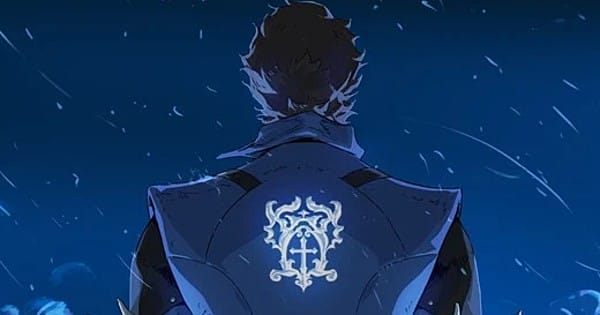
Castlevania: Nocturne Collection Assessment
I had my issues with Netflix’s initial attempt to bring the Castlevania series to life on television, but despite my irritation with some of its awkward pacing and frequently cringe-inducing dialogue, it’s difficult for me to deny that it still ranks as one of the best video game adaptations we’ve yet seen. It’s not surprising that Netflix and Powerhouse Animation Studios are attempting to capitalize on the franchise’s initial popularity by turning some of its most cherished games into a brand-new sequel series called Castlevania: Nocturne. Warren Ellis’ involvement with the show came to a stop following Castlevania’s fourth season as a result of his recent run-in with the law over his reportedly inappropriate behavior with his fans. The main concern coming into Castlevania: Nocturne was whether or not it would live up to the standards of its predecessor given that a brand-new team of writers was working with the Deats Brothers (Sam and Adam) and the rest of the Powerhouse team.
The good news comes first: In many ways, I believe Castlevania: Nocturne is superior to the best parts of the original Castlevania, not merely on par with them. This, I believe, is largely due to the new writing staff that has replaced Ellis this time around, which consists of Clive Bradley, Zodwa Nyoni, Temi Oh, and Andy “Testament” Brooks. Before any of the first season’s detractors get overly enthused, you should be aware that the dialogue of the program still includes a lot of vibrant, profanity-filled screeds and contemporary-sounding remarks. Nevertheless, they are far more subdued than some of the material Ellis produced on his own. More crucially, even when the plot hurries through crucial moments of development or revelation to bring us all to the finish line, the new ensemble of characters can all be incredibly authentic and compelling.
I believe that Nocturne deserves particular respect for the distinctive viewpoints it can present as a result of its more diverse approach both in production and on screen. Since the show opted to make Annette (Thuso Mbedu), a once-completely unknown damsel in distress, into a potent Black warrior who took part in the bloody slave revolt in Haiti, I’ve seen a lot of bad-faith grumbling. All of these worries are unfounded, of course, since it makes Annette a far more intriguing character than she was in the original games and the similarities between the Haitian Revolution and the French insurrection provide for some moving thematic storytelling.
Anyone worried that she is inadvertently “stealing” the attention from the “real” heroes may also put their worries to rest because the season also features many cool and compelling moments for Richter (Edward Bluemel) and Maria (Pixie Davies). Maria might be a little more sassy and politically astute than anticipated. She still makes a fantastic partner for Richter, and it’s a fan’s fantasy to witness her lovely (and vicious) spirit creatures come to life. Richter’s personal storyline has a commensurate tragic and heroic arc. His journey culminates in one really thrilling action scene in an episode that also has my personal favorite deep-cut allusion to a video game (GBA Castlevania lovers, rejoice!) and a needle-drop that rivals the famous “Bloody Tears” moment from the original series. It’s amazing stuff.
But because this is a Castlevania story, the forces of evil and devastation must be able to stand up to all the asskickings that our heroes can deliver. Even if Count Dracula isn’t an option because of what happened in the first show, Castlevania: Nocturne lives up to its predecessor on this level as well. Particularly the secondary antagonists make you laugh out loud with how much you despise them. Richter experiences nightmares with the enigmatic Aztec vampire known as Olrox, who is expertly voiced by Zahn McClarnon, even as he maneuvers for position among the other villains. Richard Dormer’s portrayal of Abbot Emmanuel serves as a stand-in for clerical villains like Rondo of Blood’s Shaft this season. He has been given considerably more complexity, which makes his decisions even more reprehensible as the show progresses. The season’s Big Bad, Erzsébet Báthory, is led by the smarmy, yet highly dangerous, Drolta Tzuentes (Elarica Johnson), who makes for a fantastic recurrent villainy.
The show’s most egregious flaws would be those that have always been present in these Castlevania series, such as the occasionally awkward-looking animation cuts or the voice actors’ line delivery, which occasionally sounds so impromptu and muted that you wonder if they accidentally used a rehearsal take. The only major issue I have with the show, aside from that, is how little Erzsébet Báthory herself is used in it. By no means is she a poor villain, but when compared to the likes of Dracula and the other villains from Castlevania, her “I am a god!” act falls a little flat. At the very end of the season, she does have the opportunity to develop into a more formidable and unforgettable menace, which further strengthens the notion that the best of this story is still to come.
It would have taken about a dozen hours of Richter and Maria endlessly running to the right while swinging their weapons in every which way, so I don’t want to hear any of those complaints about this not being a “faithful” adaptation of the games.
Castlevania: Nocturne is aware that its success as television must come first and that, when done well, alterations to the original content can be beneficial. This latest iteration of Castlevania on Netflix is a stunning success in that regard. It incorporates what the original show did well, gets rid of most of what it got wrong, and injects some much-needed new energy into the mix. I’m eager to see more of it.


